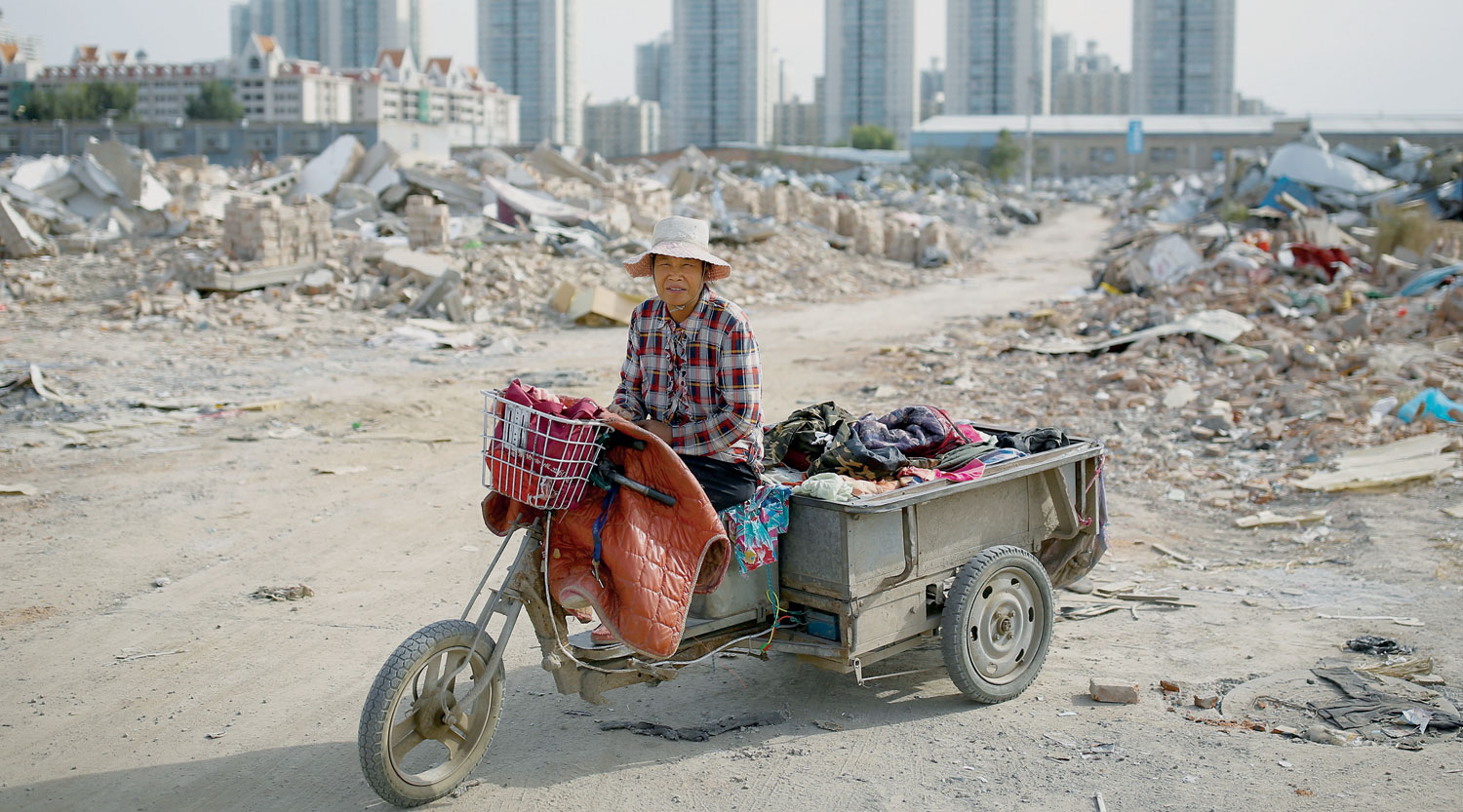

BEIJING: Wang Qin, 59, collects scrap at a demolished residential district on the outskirts of Beijing, working 15 hours a day and struggling on her own to pay for her granddaughter’s education.
She worries that her own home, a small illegally constructed shack where she lives with her granddaughter and mentally ill husband, might also be bulldozed by local authorities.
The family lives off the 1,500 yuan ($228) a month Wang makes selling scrap and receives no assistance from the Beijing government.
As migrants from another province, they are not recognised as residents of the capital despite having lived there since 2014. Since she is not registered in Beijing, Wang has to pay more for things like school and medical care — a hardship for migrants in cities, where costs such as housing are also far higher than in the countryside.
“Every month you still need to live, I still need to pay the school fees for the child, and her food and drink every day,” said Wang, who came to Beijing to try escape the grinding poverty of her village in Henan province in central China. “I can’t take it, my whole body aches, I can’t earn the money.”
Wang’s plight is a common one among millions of poor migrants in China’s big cities, as well as in the rural areas from which so many of them come, highlighting the challenges of the government’s campaign to wipe out extreme poverty by 2020.
President Xi Jinping made the campaign one of his signature policy issues after pledging in 2015 that China would lift the 70 million people living under the poverty level at the time out of poverty by 2020.
The campaign has been ratcheted up as the Communist Party prepares to hold a twice-a-decade leadership meeting on Wednesday.
“The country is placing an unprecedented amount of effort on alleviating poverty,” Liu Yongfu, head of the government’s Leading Group of Poverty Alleviation and Development, said at a news conference in Beijing on Tuesday. “President Xi Jinping is personally in command, and has visited all of the areas of concentrated poverty” in China.
He added: “With the active participation of all parts of society, it can be said that the battle against poverty has achieved significant results.”
Asked about people like Wang, the scrap collector, Liu said migrants could receive benefits in their hometowns, noting that city dwellers were covered by urban social security programmes.
Beijing has pledged to spend 86 billion yuan on poverty alleviation this year, 30 per cent more than last year, according to the Ministry of Finance. Liu said direct spending by central and local governments on poverty alleviation from 2013 to 2017 totalled 461.2 billion yuan, adding that other types of government spending also had an impact.
The funds are used for infrastructure projects, as well as subsidies for education, healthcare and rural agriculture.
The government’s poverty line is income of 2,300 yuan per year, and by the end of 2016, 43.35 million people were still officially below it. The government’s goal is to lift 10 million out of poverty this year, and at that rate the country by 2020 should, at least officially, be rid of serious poverty.
The programme is credited with increasing the attention given to the countryside and improving things like rural infrastructure. — Reuters
Oman Observer is now on the WhatsApp channel. Click here



